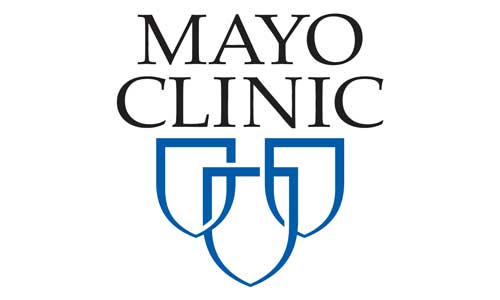Vitamin C, available in several foods and dietary supplements, shows some anticancer effects, including better survival among people with breast cancer.
How can oral vitamin C help you? What the research says
Improving treatment outcomes
Is oral vitamin C linked to improved survival? Is it linked to less cancer growth or metastasis? Does it enhance the anticancer action of other treatments or therapies? We present the evidence.
Optimizing your body terrain
Does oral vitamin C promote an environment within your body that is less supportive of cancer development, growth, or spread? We present the evidence.
See Optimizing Your Body Terrain ›
Find medical professionals who specialize in managing body terrain factors: Finding Integrative Oncologists and Other Practitioners ›
Managing side effects and promoting wellness
Is oral vitamin C linked to fewer or less severe side effects or symptoms? Is it linked to less toxicity from cancer treatment? Does it support your quality of life or promote general well-being? We present the evidence.
Commentary
Vitamin C’s role in cancer-related anemia
CancerChoices Senior Clinical Consultant Laura Pole, RN, MSN, OCNS: People with cancer may become anemic for several reasons. One is iron deficiency, the most common nutritional deficiency in advanced cancer patients and the cause of iron-deficiency anemia.89Pappalardo A, Currenti W et al. Effects of micronised microencapsulated ferric pyrophosphate supplementation in patients with advanced cancer and iron deficiency: a single-centre cohort pilot study. Blood Transfusion. 2019 May;17(3):196-199. Diagnosing this kind of anemia involves blood tests, including complete blood count (CBC) and ferritin levels.90Iron deficiency anemia—diagnosis and treatment. Mayo Clinic. January 4, 2022. Viewed June 6, 2023.
Vitamin C deficiency may also be a common and underrecognized cause of anemia. One study concluded that vitamin C deficiency was linked to anemia, regardless of iron status, as well as inflammation as shown by higher levels of ferritin.91Sehbai A, Asif N. De novo anemia and relationship with vitamin C deficiency and zinc deficiency in a southern Delaware population, a retrospective analysis. Blood. 2015;126(23):4547.
Because vitamin C is capable of turning iron in your blood into a more soluble and therefore more usable form and can also improve iron absorption, vitamin C deficiency may also play a role in iron-deficiency anemia. Because of these effects, for years doctors routinely recommended people take vitamin C along with iron supplements. However, one well-designed research found that the effects of iron supplements on hemoglobin levels and iron stores are no different whether vitamin C is taken with iron or not.92Li N, Zhao G et al. The efficacy and safety of vitamin C for iron supplementation in adult patients with iron deficiency anemia: a randomized clinical trial. JAMA Network Open. 2020 Nov 2;3(11):e2023644. Unfortunately, this study did not report the effects of adding vitamin C among the study participants who may have been deficient in vitamin C. We know from studies of other therapies—such as vitamin D—that people with a deficiency may get a benefit from taking supplements, but other people may not. People with vitamin C deficiency who need iron supplementation may benefit from taking vitamin C. This study didn’t investigate this.
A side note related to iron supplementation: Ferrous sulfate (the standard type of iron prescribed) is poorly absorbed and typically constipating. Ferrous gylcinate or bisglycinate (sometimes called “gentle iron” or “iron chelate”) is far better absorbed and does not cause bowel changes. For this reason, if iron is needed, ferrous glycinate is a preferable form.
Because evidence on whether or not to supplement with vitamin C to manage anemia is inconclusive, we provide some key take-aways based on the best available information:93Li N, Zhao G et al. The efficacy and safety of vitamin C for iron supplementation in adult patients with iron deficiency anemia: a randomized clinical trial. JAMA Network Open. 2020 Nov 2;3(11):e2023644; Simonson W. Should vitamin C routinely be given with oral iron supplements? Geriatric Nursing. 2019 May-Jun;40(3):327-328.
- Iron is usually well-absorbed, and iron-deficiency anemia typically responds quickly to iron supplements. Before adding another supplement such as vitamin C, check that you are taking the iron supplement correctly for optimal absorption: take it at the right time, not with foods that compete with iron absorption, and avoid interactions with any drugs or other supplements that decrease absorption. Favor ferrous gylcinate or bisglycinate for iron supplementation, as these are absorbed better and are less constipating than ferrous sulfate.
- Check for and correct a vitamin C deficiency. Ask your doctor or registered dietitian whether increasing vitamin C in your diet would be sufficient to bring your levels to an appropriate range or if they recommend supplementation. Talk to your doctor before starting any supplements.
- If you supplement with vitamin C when taking iron, the dose recommended is 200 mg or more of vitamin C for every 30 mg of iron. This dose of vitamin C, especially when combined with iron, may increase your risk of nausea and diarrhea.
- Some products combining iron and vitamin C tend to be more expensive than separate supplements and may not have an adequate dose of vitamin C to provide benefit.
Addition from CancerChoices advisor Jen Green, ND, FABNO: Vitamin C deficiency is so common in cancer patients that I would recommend using 500 mg vitamin C orally to treat deficiencies regardless of iron status. “Extensive literature demonstrates that cancer patients experience vitamin C deficiency correlated with reduced oral intake, inflammation, infection, disease processes, and treatments such as radiation, chemotherapy, and surgery.”94Klimant E, Wright H, Rubin D, Seely D, Markman M. Intravenous vitamin C in the supportive care of cancer patients: a review and rational approach. Current Oncology. 2018 Apr;25(2):139-148.
Reducing cancer risk
Is oral vitamin C linked to lower risks of developing cancer or of recurrence? We present the evidence.
Helpful link
References

